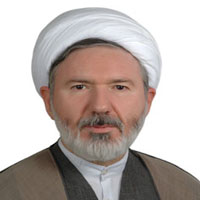مقالات رزومه:
زهرا محمدی محمدیه
-
رابطه ی فضیلت، معرفت و خیر با یکدیگر یکی از محورهای اساسی در فلسفه ی اخلاق محسوب می گردد و نوع نگاه به این رابطه طبیعتا پیامدهایی در رابطه با اصالت علم یا اصالت عمل و یا دیدگاه سومی را به دنبال دارد.در این زمینه افلاطون- فیلسوف بزرگ یونان باستان- و ملاصدرا-اندیشمند بزرگ فلسفه ی اسلامی- هر دو در مسئله فضیلت نگاه منحصر به فردی دارند که موید ارتباط تنگاتنگ اخلاق، معرفت شناسی و هستی شناسی است.این پژوهش بر آن است تا با روش تحلیلی- توصیفی، ضمن بررسی مبانی فلسفی افلاطون (از جمله نظریه ی ایده) و ملاصدرا (از جمله مراتب تشکیکی وجود و نیز نگاه ویژه به نفس و حرکت استکمالی آن)، تشابهات و تناظر آراء آن دو را بیان کند و تفاوت ها و افتراقات موجود در این زمینه را مورد واکاوی و تحلیل قرار دهد.با تشریح مسئله فضیلت و تحلیل ساختاری آراء و نیز توجه به مبانی فلسفی متفاوت آن دو اندیشمند، این همانی وجودی معرفت، فضیلت و خیر را می توان دریافت. یگانگی سه مقوله ی مذکور با تکیه بر محوریت معرفت، و احاطه ی مفهومی آن بر فضیلت و خیر می باشد؛آنچنانکه تحقق معرفت، به معنای حصول فضیلت و نیز پیدایش خیر است.کلید واژگان: فضیلت, حکمت, معرفت, خیر, سعادتThe relation between virtue, intuitive knowledge, and goodness is one of the basic pivots of philosophy of ethics. The kind of outlook on this relation would naturally lead to some outcomes concerning scientism or pragmatism or adopting a third viewpoint. In this field, Plato – the great Greek philosopher – and Mullah Sadra – the great thinker of Islamic philosophy – both have an exclusive outlook about virtue, which confirms a close relation between ethics, epistemology, and ontology. While studying the philosophical principles of Plato (including the idea theory) and Mulla Sadra (including the analogical gradation of existence as well as a specific perspective on soul and its ontogenetic motion) and with the use of an analytical-descriptive method, this research is intended to express the similarities and correspondence of their opinions and explore and analyze the differences existing in this respect. By expounding the notion of virtue and structural analytical of opinions as well as noticing the different philosophical principles of the two thinkers, one can find out the existential identity of intuitive knowledge, virtue, and goodness. The unity of the above three categories would be with an emphasis on the centrality of intuitive knowledge and its conceptual command on virtue and goodness; in such a way that the actualization of intuitive knowledge means attaining virtue and appearance of goodness.Keywords: virtue, Philosophy, Intuitive knowledge, goodness, Perfection, happiness
-
افلاطون و ملاصدرا هیچ یک واژه نماد را در آراء خود به کار نبرده اند، اما بر اساس اصل حکایتگری و توجه به مبانی فلسفی دو فیلسوف می توان جایگاه نماد را در اندیشه ی آن دو تحلیل کرد. با ابتنا بر اهمیت نظریه ی ایده و کیفیت محاکات مورد نظر افلاطون، چنین برداشت می گردد در اندیشه ی وی نماد امری است که به نحو تشابهی خاص برمبنای رابطه ی «بهره مندی»، نشانگر ایده می باشد. در اندیشه ی ملاصدرا نیز با تامل در کیفیت حکایتی که برخاسته از مبانی فلسفی وی، یعنی اصالت و تشکیک وجود و نیز نحوه ی محاکات در روابط علی است می توان نماد را امری دانست که از امر نمادینه شده ای حکایت می کند که علت آن است و نماد به حکم هویت رقیقتی و تشابه ظلی حقیقی از آن محاکات دارد. این پژوهش بر آن است تا با اتکاء به روشی تحلیلی ضمن تبیین جایگاه نماد در نگرش دوفیلسوف، هنر را با نگرش نمادشناسی مورد تدقیق قرار دهد. با تحلیل نمادشناسی در اندیشه ی دو فیلسوف،در عین واگرایی مبانی فکری آن دو، نوعی همگرایی در ارتباط با نمادشناسی و بسط آن در حوزه ی هنر می توان یافت که نوعی تحول از بعد فلسفی را نسبت به هنر برمی تابد و این رویکرد به سنجش و شفافسازی جایگاه هنر در اندیشه ی آن ها می انجامد.کلید واژگان: هنر, ایده, نماد, تصویر, تقلیدPlato and Mulla Sadrā have never used the terms opinions but we may conceptualize symbolism in the ground of their philosophical thoughts with platonic and Mulla Sadrā's views based on narrative principle and with respect to their philosophical foundations. Based on the significance of ideology theory and quality of Plato's intended imaginations, it may be concluded that a symbol is in imperative thought which has got a kind of specific resemblance based on "enjoyment" relation from the transcendent reality of narration. Pondering upon the quality of narration emanated from Mulla Sadrā's philosophical views, a symbol may be considered as an issue which is narrated from a symbolized issue as its reason and a is regarded as a companion identity and a real shadow-like similarity of its imaginations. Utilizing a philosophical analysis method for explaining the nature of symbol in these philosophers' views, a new reading to the position of art in their philosophical system is presented which is based on the analysis of their ideology to the nature of symbolism and is based on a kind of separation in arts according to their imaginations as (non)-symbolic. Such a reading could be considered as the basis for influential art in the epistemic elevation. A symbolistic analysis of these two philosophers' thoughts shows that while their intellectual foundations diverge from each other, there is convergence in their views on symbolism and its expansion in the area of art which depicts a kind of development from the philosophical dimension to the position of art.Keywords: idea, symbol, illustration, imitation
-
افلاطون در مکتب فلسفی خویش نظام خاصی از هستی بر پایه ی ارتباط سایه و عکس با اصل و حقیقت ارائه می دهد. وی در این راستا از موجودی متعالی که اصل خیر (خدای نظام فلسفی او) است، سخن می گوید که ورای وجود است. با تدقیق در جایگاه اصل خیر در هستی و تحلیل کیفیت «بهره مندی» ، آشکار می گردد که وجود حقیقی منحصر در آن است،و سایر موجودات نمود و سایه ای از آن هستند، آنچنانکه برای سایر موجودات حتی ایده ها (مثل) هیچ استقلالی نمی توان در نظر گرفت و به این ترتیب هستی شناسی فلسفی افلاطون بر محور حقیقتی واحد دنبال می شود. ملاصدرا نیز با طرح نظریه ی نهایی خویش یعنی وحدت شخصی وجود، هستی را منحصر در امری واحد (خدا) می داند و ما سوای حق تعالی را ظهورات و شئون او در نظر می گیرد که حکایتگر و نمود ذات حق هستند آنچنان که این کثرات ظهور، مخل وحدت حقیقت وجود نمی گردند. این پژوهش بر آن است تا افتراقات و تشابهات رویکرد فلسفی افلاطون و ملاصدرا در رابطه با نگاه آن دو به وجود حقیقی را بر اساس مبانی هستی شناسی متفاوت آن دو آشکار سازد.کلید واژگان: وجود حقیقی, اصل خیر, حقیقت, خدا, ظهورPlato in his philosophy school offers a special system for universe based on relationship between shadow or photograph and the true being. In this way, he talks about a transcendental being that is the origin of Good (God in his philosophical system) and is beyond existence. By paying attention to position of the origin of the Good in the universe and analyzing the quality of "benefitting" it becomes clear that true existence is confined to it and the other beings are only reflections and shadows of it so that we cannot consider any independence for other beings even "the ideas" and therefore, Plato's ontology circles around a single truth. Mullah Sadra also by offering his final theory "personal pantheism" confines beings to one single being (God) and considers the other beings as His manifestations, since multiplicity of the appearances does not contradict unity of the truth. The present paper tries to discover the similarities and differences of Plato and Mullah Sadra's approach to the true existence based on their different anthological ideas.Keywords: True existence, Origin of the Good, Truth, God, Manifestation
-
نشریه حکمت معاصر، پیاپی 10 (زمستان 1392)، صص 99 -119مباحث مربوط به خلقت و ترتیب بندی موجودات، اصل خیر را در راس هرم هستی شناسی خود می نهد و سعی در توجیه ارجاع کثرات به وحدت متعالی دارد. از سوی دیگر ملاصدرا نیز بر مبنای اصول فلسفی و دینی خود با نگاهی وحدت محور با طرح نظریه بدوی خود یعنی (وحدت تشکیکی وجود) و نظریه نهایی خویش (وحدت شخصی وجود) به نحوی خاص می کوشد تا چگونگی ارجاع این کثرات به وحدت متعالی را مبین سازد.
با وجود تفاوت هایی که در این زمینه در اندیشه این دو فیلسوف، بر اساس مبانی فلسفی متفاوت آن ها وجود دارد، هر دو، کثرات را به امری واحد ارجاع می دهند به نحوی که کثرات را بیش از سایه ای از وحدت متعالی نمی انگارند و در این رابطه چینش مورد نظر افلاطون از نظام هستی متناظر با نظریه بدوی ملاصدرا از هستی استکلید واژگان: وجود, ایده, اصل خیر, خدا, ظهور, وحدت, کثرتA Comparative Study of the Transmission from Plurality to Oneness in Plato and MullaSadra's OntologyPlato on the basis of his unifier viewpoint offered the theory of Idea and other cosmological related to creation and the chain and arrangement of beings. He also placed the principal of Goodness in the climax of the pyramid of his ontology، and by which tried to refer the plurality of beings to oneness. On the other hand، Mulla Sadra by his philosophical and religious principals and on the basis on his unifier viewpoint offered his first ontological theory (i. e. Tashkiki unity of being) and the ultimate one (i. e. personal unity of being). As a result، he also tried to explain the quality of manifold beings by reference to oneness. Despite the thought differences of the two philosophers in the field which based is based on their philosophical foundations، both return manifold beings to unity، so that they regard manifold beings as shadows of a transcendent unity. Ontology in Plato''s thought corresponds with Mulla Sadra''s first theory (i. e. Tashkiki unity of being).Keywords: being, Idea, the principal of Goodness, God, appearance, unified, manifold
نویسندگان همکار
بدانید!
- این فهرست شامل مطالبی از ایشان است که در سایت مگیران نمایه شده و توسط نویسنده تایید شدهاست.
- مگیران تنها مقالات مجلات ایرانی عضو خود را نمایه میکند. بدیهی است مقالات منتشر شده نگارنده/پژوهشگر در مجلات خارجی، همایشها و مجلاتی که با مگیران همکاری ندارند در این فهرست نیامدهاست.
- اسامی نویسندگان همکار در صورت عضویت در مگیران و تایید مقالات نمایش داده می شود.





